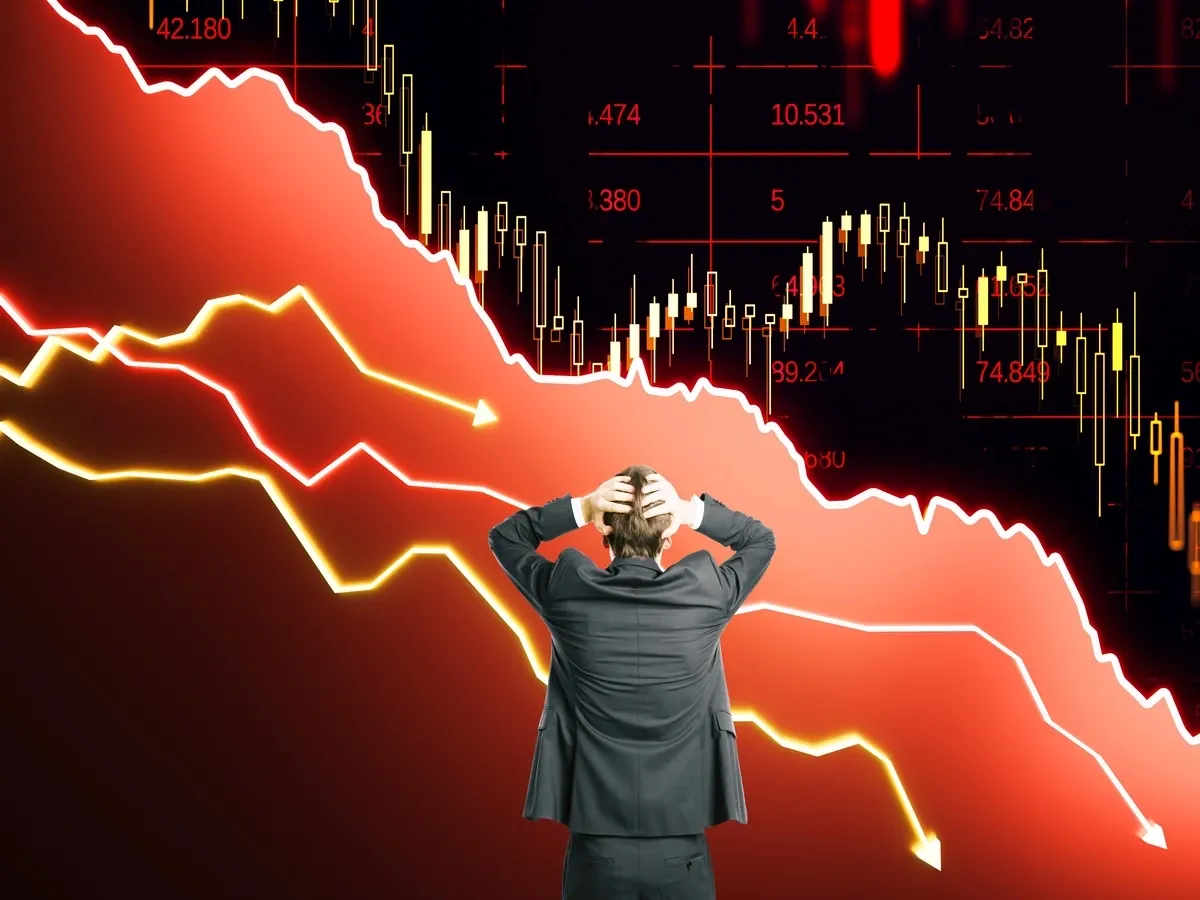Market News
Stock market crash: Futile to predict future events; investors should follow asset allocation dharma, says Nilesh Shah, Kotak Mahindra AMC
.png)
3 min read | Updated on April 11, 2025, 19:36 IST
SUMMARY
Stock market crash: The S&P BSE SENSEX sank 2,226.79 points, or 2.95% – its steepest single-day decline in 10 months – while the broader NIFTY50 index of the National Stock Exchange (NSE) ended at 22,161.60 levels, down 742.85 points, or 3.24%.
Stock list

Overseas investors net sold Indian equities worth ₹9,040.01 crore on Monday. | Image: Shutterstock
In India, the S&P BSE SENSEX sank 2,226.79 points, or 2.95% – its steepest single-day decline in 10 months – while the broader NIFTY50 index of the National Stock Exchange (NSE) ended at 22,161.60 levels, down 742.85 points, or 3.24%.
HUL ended marginally higher.
Overseas investors net sold Indian equities worth ₹9,040.01 crore on Monday, while domestic institutional investors (DIIs) net purchased shares worth ₹12,122.45 crore, NSE data show.
The across-the-board selling made investors a poorer lot as their wealth eroded sharply by ₹14 lakh crore. At one point during the morning trade, investors' wealth eroded sharply by ₹20.16 lakh crore.
What should one do amid market turmoil?
Amid the market mayhem and panic selling, market experts suggest investors should follow their asset allocation dharma. They are of the view that large caps are fairly valued and hence deserve neutral allocation.
Making staggered investments into large largecaps should be a prudent approach, they say.
Nilesh Shah, MD at Kotak Mahindra AMC
The market is unable to quantify the uncertainty unleashed by the tariff war. It is reacting to every news story coming through. Likely that the unfolding events will keep sellers on an aggressive sell mode and buyers on a reluctant buy mode.
It will be futile to predict future events.
Investors should follow their asset allocation dharma. Large caps are fairly valued and hence deserve neutral allocation. Buy into correction in a gradual manner to be overweight equity as markets become cheap.
Domestic themes like cement, building materials and consumer discretionary look attractive from a longer-term point of view.
The tax rebate announced in the budget, the EMI burden coming down due to lower rates, the likely drop in oil prices and the eighth pay commission to be implemented next year will support the consumption theme.
Nitin Aggarwal, Director of Investment Research and Advisory at Client Associates
We remain cautious in the near term because of the uncertainty; however, we recommend having exposure to large caps and deploying it in a staggered manner. The path ahead will depend on coordination among major economies—particularly China, India, and Russia—to manage trade tensions and economic shocks.
Ketan Vikam, Head of Sales at Almondz Institutional Equities
While the benchmark index opened with a significant gap down of over 1,000 points, falling nearly 5% from the previous close, it also failed to sustain above the 22,000 zone, highlighting a lack of conviction and heavy selling by investors across the globe on account of reciprocal tariffs announced by the Trump administration.
We expect domestic markets to consolidate at these levels, as tariffs India would be facing will be lower compared to China, Vietnam, etc. However, with recent corrections, valuations have become attractive, but due to global uncertainty we expect Indian markets to remain volatile in April.
Related News
About The Author
Next Story


